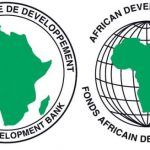- The initiative aims to enhance the development and financing of bioethanol production and distribution infrastructure in Madagascar.
- This effort is expected to mitigate severe deforestation in the country, which is partly driven by the reliance on cooking fuels such as charcoal and wood.
- The Letter of Intent (LoI) is anticipated to reduce dependence on harmful fuels that have detrimental effects on both the climate and public health, particularly impacting women and children who are most vulnerable.
On Thursday, Africa50, the African Development Bank, and the OPEC Fund for International Development signed a Letter of Intent with the Government of Madagascar to boost the nation’s bioethanol production capacity. The agreement was announced during Africa50’s General Shareholders Meeting in Antananarivo and aims to transform Madagascar’s energy landscape, benefiting millions who depend on unsafe cooking fuels.
Key signatories of the agreement included Olivier Jean Baptiste, Madagascar’s Minister of Energy and Hydrocarbons; Khaled Al-Zayer, OPEC Fund Public Sector Director for East and Southern Africa; Alain Ebobissé, CEO of Africa50; and Kevin Kariuki, Vice President of the African Development Bank for Power, Energy, Climate, and Green Growth.
The partners plan to enhance bioethanol production and distribution in Madagascar by constructing and upgrading production infrastructure while strengthening supply chains to improve accessibility and availability for consumers. This program aims to facilitate access to clean cooking fuels, particularly in remote and underserved areas, and reduce reliance on polluting fuels that contribute to negative health and climate effects.
Currently, 99 percent of Madagascar’s population relies on charcoal and wood for cooking, leading to significant deforestation in the country. The World Health Organization reports that indoor air pollution, primarily caused by the use of these harmful fuels, is the second leading cause of premature death in sub-Saharan Africa, resulting in approximately 700,000 deaths annually, predominantly among women and children under five.
Africa50 will serve as the lead developer for the bioethanol production infrastructure, while the African Development Bank and the OPEC Fund will provide technical and financial assistance to the Government of Madagascar. This initiative is part of Africa50 and the AfDB’s broader efforts to mobilize innovative financing solutions to support Africa’s energy transition.
Minister Baptiste remarked, “The widespread use of harmful fuels in Madagascar severely impacts health, gender, and climate. We are proud to be part of this partnership, which will enhance access to clean cooking fuels and help safeguard the health and well-being of our citizens.”
Al-Zayer emphasized, “Supporting clean cooking is a core element of the OPEC Fund’s climate action strategy as it encompasses crucial aspects of sustainable development. Introducing clean, efficient, and affordable appliances will significantly improve public health, reduce adverse environmental impacts, and facilitate women’s empowerment.”
Ebobissé stated, “Africa50 is dedicated to increasing access to clean cooking fuel across Africa by collaborating with like-minded partners to scale up investment in bioethanol-related infrastructure. We are pleased to partner with the Government of Madagascar as part of broader efforts to develop essential infrastructure in the country that will limit deforestation and combat climate change while improving livelihoods.”
Kariuki added, “This is a crucial step toward enhancing access to clean cooking fuel in Madagascar. Developing essential infrastructure that saves lives and positively impacts climate is a vital component of our investment strategy at the AfDB, and we are excited to collaborate with Africa50, the OPEC Fund, and the Government of Madagascar to promote clean cooking in the country.”
About the OPEC Fund
The OPEC Fund for International Development (the OPEC Fund) is the only globally mandated development institution that provides financing from member countries to non-member countries exclusively. The organization collaborates with developing country partners and the international development community to stimulate economic growth and social progress in low- and middle-income countries worldwide. Established in 1976, the OPEC Fund has committed approximately $27 billion to development projects in over 125 countries, with an estimated total project cost exceeding $200 billion.
About Africa50
Africa50 is a pan-African infrastructure investor and asset manager dedicated to contributing to Africa’s growth by developing and investing in bankable projects, catalyzing public sector capital, and mobilizing private sector funding to achieve differentiated financial returns and impact. Africa50 currently has 35 shareholders, which include 31 African countries, the African Development Bank, the Central Bank of West African States (BCEAO), and Bank Al-Maghrib. For more information, visit: africa50.com.
About the African Development Bank Group
The African Development Bank Group is Africa’s premier development finance institution. It comprises three distinct entities: the African Development Bank (AfDB), the African Development Fund (ADF), and the Nigeria Trust Fund (NTF). Operating in 41 African countries with an external office in Japan, the Bank contributes to the economic development and social progress of its 54 regional member states.
 We just launched our WhatsApp channel. Want to get the latest news from the Tech in Africa?
We just launched our WhatsApp channel. Want to get the latest news from the Tech in Africa?



